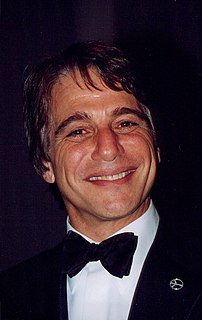A Quote by Susan Barker
You know, you hear about these writers reading 'Lolita' at 12. I wanted to be a chemistry teacher.
Related Quotes
As a director, it became important to hear that specific role read by that specific actor, and you hear the chemistry, or you don't hear the chemistry. So I'm not so bothered by the audition process anymore; in fact, I use it. It's a time for the actor to actually get to the know the director and the producers a little bit, too.
I read continually and don't understand writers who say they don't read while working on a book. For a start, a book takes me about two years to write, so there's no way I am depriving myself of reading during that time. Another thing is that reading other writers is continually inspiring - reading great writers reminds you how hard you have to work.
If I'd loved my chemistry teacher and my maths teacher, goodness knows what direction my life might have gone in. I remember there was a primary school teacher who really woke me up to the joys of school for about one year when I was ten. He made me interested in things I would otherwise not have been interested in - because he was a brilliant teacher. He was instrumental in making me think learning was quite exciting.
Reading with an eye towards metaphor allows us to become the person we’re reading about, while reading about them. That’s why there is symbols in books and why your English teacher deserves your attention. Ultimately, it doesn’t matter if the author intended the symbol to be there because the job of reading is not to understand the author’s intent. The job of reading is to use stories as a way into seeing other people as a we ourselves.
I don't know anything about chemistry, but I know that there's a whole world of chemistry, of professional chemists. They have their prizes, they have their publications, they have their work. Just because I don't know about it, doesn't mean that it doesn't exist. A lot of people say, "Isn't poetry in trouble today?" Or: "Nobody really reads poetry anymore." And I say, "You're crazy." There's a huge world of poetry out there. You may not know about it, but it's there.
In company with people of your own trade you ordinarily speak of other writers' books. The better the writers the less they will speak about what they have written themselves. Joyce was a very great writer and he would only explain what he was doing to jerks. Other writers that he respected were supposed to be able to know what he was doing by reading it.
I believe you have to write every day–make the time. It’s about having an organized mind instead of a chaotic and untidy one. There is a myth that writers are bohemian and do what they like in their own way. Real writers are the most organized people on the planet. You have to be. You’re doing the work and running your own business as well. It’s an incredibly organized state. [Also reading]…one of the things reading does do is discipline your mind. There are no writers who are not readers.





































